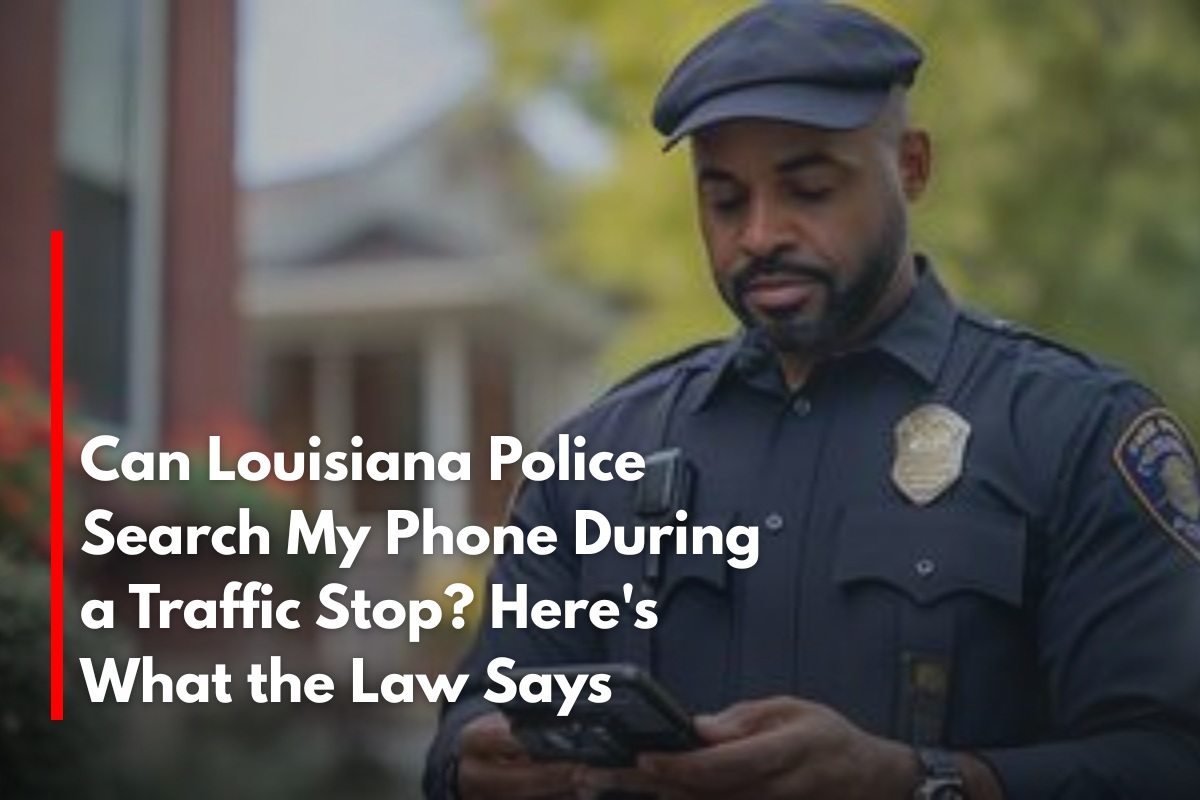In today’s digital age, a smartphone holds a vast amount of personal information, making privacy concerns especially relevant during police encounters. One common question is whether Louisiana police can legally search your phone during a traffic stop. Understanding your rights and the legal framework governing phone searches in Louisiana is critical for protecting your privacy.
Fourth Amendment Protections
The Fourth Amendment of the U.S. Constitution protects individuals from unreasonable searches and seizures, which includes searches of electronic devices like cell phones. Generally, Louisiana police officers need a warrant supported by probable cause to search your phone. Without a warrant, most phone searches are considered illegal and any evidence obtained may be inadmissible in court.
When Can Police Search Your Phone Without a Warrant?
Louisiana law and court rulings identify a few exceptions where police can search your phone without a warrant during a traffic stop:
1. Exigent Circumstances
If officers reasonably believe there is an immediate threat to public safety or that evidence on your phone is at risk of being destroyed, they may conduct a search without a warrant. For example, if a crime involving imminent danger is underway or if waiting to obtain a warrant would result in critical evidence being deleted, a phone search may be justified.
2. Consent
If you voluntarily consent to a search of your phone, officers are permitted to proceed without a warrant. However, it is important to know that you have the right to refuse consent to officers requesting to search your phone. Police cannot coerce or compel consent.
3. Inventory Search
If your vehicle is impounded after a traffic stop, the police may perform an inventory search of the vehicle and its contents, which can include your phone. This is intended to protect your property and prevent theft but must be conducted according to departmental policies and cannot be a pretext for investigation.
What Should You Do During a Traffic Stop?
Do not consent to a phone search without understanding your rights.
Politely ask if the officer has a warrant.
Know that you must provide your driver’s license, insurance, and registration when requested.
Remain calm, respectful, and cooperative without volunteering extra information or consenting to searches.
If you believe your rights were violated, document as much as possible and consult an attorney promptly.
Legal Consequences of Illegal Searches
If police search your phone illegally (without a warrant, consent, or valid exception), any evidence found may be excluded from court proceedings under the exclusionary rule, protecting your privacy and ensuring law enforcement follows proper procedure.
What Louisiana Law Says
Police generally need a warrant to search your phone during a traffic stop.
Exceptions include exigent circumstances, voluntary consent, or vehicle impoundment inventory.
You have the right to refuse consent for phone searches.
Illegal searches violate the Fourth Amendment and can lead to evidence suppression.
In Louisiana, your phone is protected by the Fourth Amendment’s privacy rights, and police must usually obtain a warrant before searching it during a traffic stop. Being informed of your rights and knowing when to refuse consent can protect your privacy and legal interests. If faced with a phone search by police, staying calm, respectful, and assertive about your rights is key. Should your rights be violated, consulting a qualified attorney can help address and rectify the situation.
Understanding the balance between lawful policing and individual privacy safeguards is crucial in today’s tech-driven world, especially in sensitive situations like traffic stops.
Sources
[1] https://kpel965.com/can-louisiana-police-search-your-phone-during-a-traffic-stop/
[2] https://www.legis.la.gov/legis/Law.aspx?d=112364
[3] https://www.laaclu.org/app/uploads/2022/10/know_your_rights_one-page_v3.pdf
[4] https://ossiebrown.com/blog/is-louisiana-a-stop-and-id-state/
[5] https://www.ericgjohnsonlaw.com/what-rights-do-i-have-during-a-police-search/











